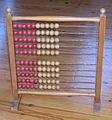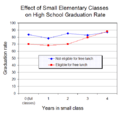Educational psychology facts for kids
Educational psychology is a special part of psychology. It looks at how people learn and how teaching can be made better. This field helps teachers understand students and make schools great places for learning. It has been around for a long time, but it really grew in the 1900s.
Contents
Two Ways of Thinking
Educational psychology has two main ways of looking at things: one is like a science, and the other focuses on the person.
Learning as a Science
One way is to study learning like a science. Around 1900, scientists like Alfred Binet and Edward Thorndike pushed for this. They wanted to measure learning and use facts and research.
Alfred Binet created the first intelligence tests. These tests helped to measure how smart someone was. Lewis Terman later made these tests popular in English-speaking countries. Edward Thorndike believed in using experiments and measurements to understand how people learn. He wanted psychology to be a true science.
During World War I, these intelligence tests became very useful. They helped decide which jobs were best for new soldiers. After the war, schools started using these tests too. They helped schools understand students better and place them in the right classes.
Focusing on the Child
The other way to think about educational psychology is to see each child as a growing person. Children are very open to new ideas and experiences. Education can really change a child. This idea, that the child is the most important part, comes from humanistic psychology.
Many educators, especially those working with younger kids, support this view. Famous examples include Johann Pestalozzi, Maria Montessori, John Dewey, and Jean Piaget. This approach is often called "child-centered" education. It means teaching methods are designed around what is best for each child.
Helping Schools and Kids
Different countries balance these two approaches in their own ways. Many places have special psychologists who work with schools. They help children and make sure schools are good places to learn.
In the United Kingdom, these experts are now called 'educational and child psychologists'. They go through a special 3-year training program. In the United States, they are usually called school psychologists. These psychologists use their knowledge to help children and families, often working with local government education offices.
Images for kids
-
An abacus helps students understand difficult math ideas by letting them see and touch the numbers.
See also
 In Spanish: Psicología educativa para niños
In Spanish: Psicología educativa para niños





